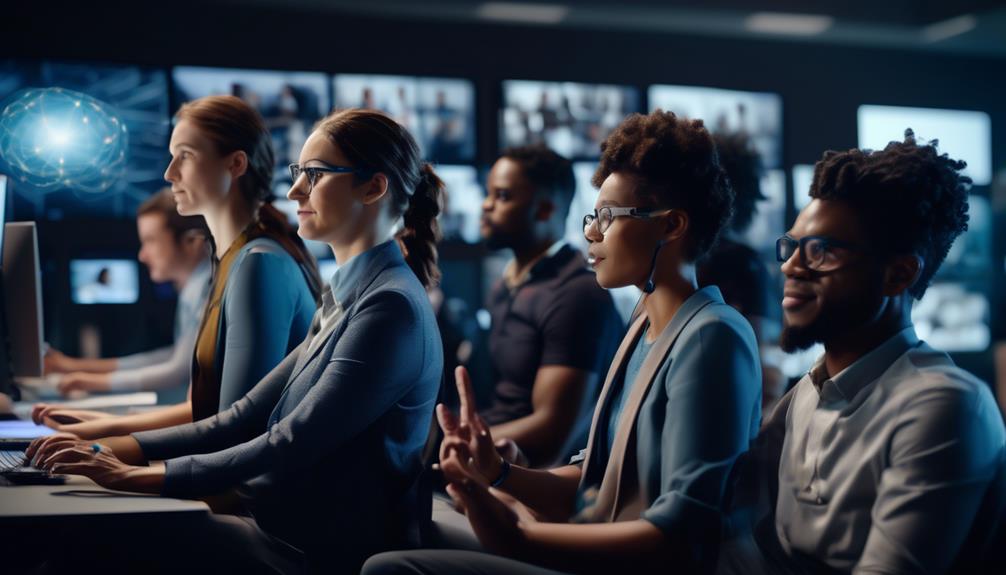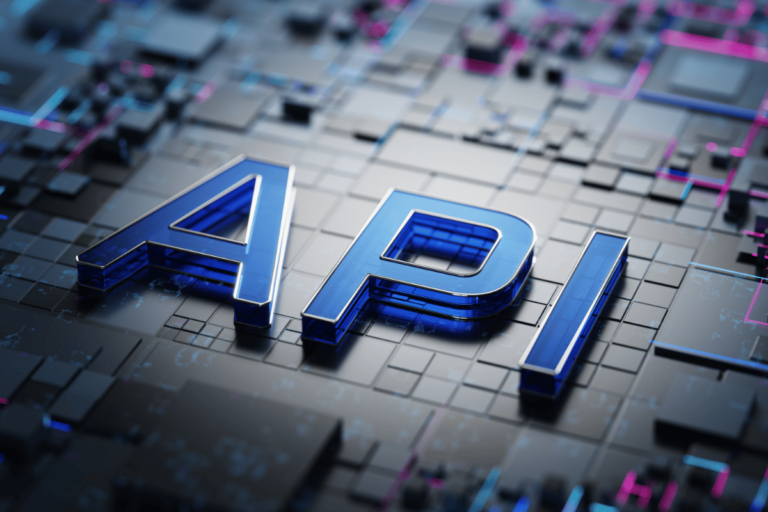Continuous Learning and Upskilling THRough HR Tech Platforms
In today's fast-paced and ever-evolving business landscape, organizations are recognizing the need for continuous learning and upskilling to stay competitive.
With the advent of HR tech platforms, employees now have access to a wealth of learning resources that can be tailored to their individual needs. These platforms not only offer a wide range of courses and training programs but also provide real-time tracking and monitoring of progress, creating an interactive learning experience.
But that's not all – stay tuned to discover how HR tech platforms are revolutionizing the way we learn and develop our skill sets in the workplace.
Key Takeaways
- HR tech platforms automate manual tasks and centralize data, saving time and costs while improving data accuracy and reducing duplication.
- Access to a wide range of learning resources through HR tech platforms enhances knowledge, upskilling, and staying updated with industry trends.
- HR tech platforms provide extensive knowledge access, offering a wide array of learning materials and opportunities for continuous learning and upskilling.
- Real-time tracking and monitoring of progress on HR tech platforms enable organizations to gather valuable insights, make data-driven decisions, and provide targeted coaching and feedback for personalized learning and performance improvement.
Advantages of HR Tech Platforms
HR Tech platforms offer numerous advantages for organizations, providing them with enhanced efficiency and streamlined processes in managing their human resources. One of the main benefits of HR Tech platforms is the automation of manual tasks. These platforms allow for the automation of processes such as employee onboarding, payroll management, and performance evaluations. By automating these tasks, organizations can save time and reduce the risk of errors, leading to increased productivity and cost savings.
Another advantage of HR Tech platforms is the ability to centralize data. These platforms serve as a centralized repository for employee information, allowing HR professionals to easily access and manage data related to employee performance, training, and development. This centralized approach eliminates the need for multiple spreadsheets or paper-based records, reducing the risk of data duplication and improving data accuracy.
Furthermore, HR Tech platforms enable organizations to provide self-service options for employees. Employees can access their own HR information, such as pay stubs, benefits, and time-off requests, through a user-friendly interface. This self-service functionality not only empowers employees but also reduces the administrative burden on HR teams, freeing up their time to focus on strategic initiatives.
Access to a Wide Range of Learning Resources
Access to a wide range of learning resources is a key advantage of HR tech platforms. These platforms provide diverse learning materials, allowing employees to access extensive knowledge and gain a broader understanding of various topics.
With such broad learning opportunities, employees can continuously upskill and stay updated with the latest industry trends and developments.
Diverse Learning Materials
A diverse range of learning resources enables continuous learning and upskilling for employees. Access to various materials through interactive learning tools and e-learning platforms brings numerous benefits to individuals and organizations alike.
Here are four compelling reasons why diverse learning materials are crucial:
- Engagement: Interactive learning tools capture employees' attention and foster active participation, making the learning process more engaging and enjoyable.
- Flexibility: A wide range of learning resources allows employees to choose materials that suit their learning preferences and adapt to their schedules, promoting a flexible and personalized learning experience.
- Depth of Knowledge: Diverse learning materials offer different perspectives, enabling employees to gain a comprehensive understanding of a subject and develop a deeper level of expertise.
- Innovation: Exposing employees to a variety of learning resources sparks creativity and innovation, as they can draw inspiration from different sources and apply diverse perspectives to their work.
Extensive Knowledge Access
With a wide array of diverse learning materials at their disposal, employees gain extensive knowledge access to a wide range of resources, enabling continuous learning and upskilling.
HR tech platforms provide employees with the ability to access various learning resources such as online courses, e-books, videos, webinars, and virtual classrooms. These platforms offer a centralized hub where employees can easily search for and access the learning materials they need to enhance their knowledge and skills.
The availability of a wide range of resources ensures that employees have the opportunity to explore different topics, theories, and practices, enabling them to continuously learn and stay updated in their respective fields. This extensive knowledge access helps employees to acquire new skills, deepen their expertise, and adapt to the evolving demands of their roles and industries.
Broad Learning Opportunities
Employees are provided with a diverse range of learning resources, ensuring broad learning opportunities on HR tech platforms. These platforms offer a multitude of benefits for continuous learning, especially for remote and distributed workforces.
Here are four reasons why access to a wide range of learning resources is essential:
- Flexibility: HR tech platforms allow employees to learn at their own pace, anytime and anywhere, providing flexibility that fits their individual schedules and preferences.
- Relevance: With a broad array of learning resources, employees can access the most up-to-date and relevant information, ensuring their skills remain current and aligned with industry trends.
- Personalized Learning: HR tech platforms often employ AI and machine learning algorithms to personalize learning experiences, tailoring content and recommendations to employees' specific needs and interests.
- Holistic Development: By offering diverse learning resources, HR tech platforms enable employees to engage in various learning modalities, such as videos, podcasts, webinars, and interactive modules, fostering holistic development and enhancing knowledge retention.
With broad learning opportunities available through HR tech platforms, organizations can empower their workforce to continuously learn and upskill, regardless of their location or work arrangements.
Customized Learning Paths for Individual Needs
Tailoring learning paths to meet the specific needs of individuals is a key feature of HR tech platforms. This allows organizations to optimize the development of their workforce. Personalized learning plans enable employees to acquire the skills and knowledge necessary to excel in their roles and contribute to the overall success of the organization.
By leveraging HR tech platforms, organizations can identify the skills gaps within their workforce and create targeted learning paths to address these gaps. These platforms use data analytics to assess individual employee's competencies, preferences, and goals. They then recommend learning resources and activities accordingly. This approach ensures that employees receive the training and development opportunities that are most relevant to their roles and career aspirations.
Customized learning paths also enable employees to learn at their own pace and in a way that suits their learning style. Some individuals may prefer interactive e-learning modules, while others may benefit more from hands-on workshops or one-on-one coaching sessions. HR tech platforms can provide a variety of learning resources, such as online courses, webinars, and virtual simulations, to cater to different learning preferences.
Furthermore, organizations can continuously track and evaluate the progress of employees on their personalized learning paths through HR tech platforms. This allows for ongoing feedback and refinement, ensuring that targeted skill development remains aligned with the evolving needs of both the employees and the organization.
Real-time Tracking and Monitoring of Progress
Real-time tracking and monitoring of progress is an essential feature of HR tech platforms. These platforms provide live progress updates, allowing organizations to track the performance of their employees in real-time.
Continuous monitoring and feedback enable organizations to identify areas of improvement and make necessary adjustments to ensure the effectiveness of their learning and upskilling programs.
Live Progress Updates
Efficiently tracking and monitoring progress in real time is a crucial aspect of implementing continuous learning and upskilling through HR tech platforms. By providing live progress updates, these platforms enable organizations to offer timely feedback, ensuring learners stay on track and motivated.
Here are four key benefits of real-time tracking and monitoring:
- Immediate real-time feedback: Learners receive instant feedback on their performance, allowing them to identify areas for improvement and make necessary adjustments promptly.
- Interactive assessments: Real-time tracking enables the use of interactive assessments, engaging learners in active participation and enhancing their understanding and retention of knowledge.
- Timely intervention: Live progress updates allow HR professionals and trainers to identify learners who may be struggling or falling behind, enabling timely intervention and personalized support.
- Motivation and engagement: Real-time tracking provides learners with a sense of accomplishment as they see their progress in real-time, boosting motivation and engagement in the learning process.
With live progress updates, HR tech platforms facilitate continuous learning and upskilling by providing learners with valuable insights and support in real time.
Real-Time Performance Tracking
The ability to track and monitor progress in real-time is a crucial component of effective continuous learning and upskilling strategies implemented through HR tech platforms. Real-time performance tracking allows organizations to gather valuable insights into employee performance and make data-driven decisions to enhance learning outcomes. By utilizing real-time analytics and performance metrics, HR tech platforms provide a comprehensive view of individual and team progress, allowing for timely interventions and adjustments to achieve desired learning goals. This data-driven approach enables organizations to identify skill gaps, personalize learning experiences, and provide targeted coaching and feedback. Moreover, real-time performance tracking allows for immediate recognition and rewards, boosting employee motivation and engagement. The table below illustrates a sample real-time performance tracking dashboard, showcasing key performance metrics and progress indicators.
| Metric | Target | Actual | Variance |
|---|---|---|---|
| Completion % | 80% | 75% | -5% |
| Time Spent (hrs) | 20 | 18 | -2 |
| Quiz Score (%) | 90% | 85% | -5% |
| Competency Rating | Advanced | Intermediate | – |
Continuous Monitoring and Feedback
Continuous monitoring and feedback play a crucial role in promoting continuous improvement and optimizing learning outcomes. Here are four ways in which they can contribute to the overall effectiveness of HR tech platforms:
- Real-time tracking: Continuous monitoring allows learners to track their progress in real-time, providing immediate feedback on their performance and highlighting areas for improvement.
- Performance evaluation: Through continuous monitoring, HR tech platforms can assess learners' performance objectively, identifying strengths and weaknesses more accurately and enabling targeted interventions.
- Personalized learning: Continuous feedback helps tailor learning experiences to individual needs, allowing learners to focus on areas where they need the most improvement and progress at their own pace.
- Motivation and engagement: Real-time feedback and progress tracking foster a sense of accomplishment and motivate learners to actively participate in their own learning journey.
Interactive Learning Experience With Gamification
Enhancing the learning experience, gamification offers an interactive approach to continuous skill development through HR tech platforms. By incorporating game-design elements and mechanics into employee training, gamification promotes engagement, motivation, and knowledge retention.
Gamification in employee training leverages interactive learning techniques to make the learning process enjoyable and immersive. Through the use of leaderboards, badges, and rewards, employees are incentivized to actively participate and compete with their peers. This fosters a sense of achievement and encourages continuous improvement.
Here is an example of how gamification can be implemented in employee training:
| Gamification Element | Description |
|---|---|
| Leaderboards | Displaying top performers to encourage healthy competition |
| Badges | Recognizing achievements and milestones |
| Rewards | Offering tangible incentives for completing tasks |
| Progress tracking | Visualizing learning progress and providing feedback |
Collaboration and Networking Opportunities
Collaboration and networking opportunities within HR tech platforms facilitate knowledge sharing and professional development. These platforms offer various benefits for professionals looking to connect with others in their field and expand their network.
Here are four ways collaboration and networking opportunities can enhance professional growth:
- Knowledge exchange: HR tech platforms provide a space for professionals to interact and share insights, best practices, and industry trends. This collaboration enables individuals to learn from each other and gain new perspectives, fostering continuous learning and upskilling.
- Access to experts: Networking opportunities within HR tech platforms allow professionals to connect with industry experts and thought leaders. These connections can provide mentorship, guidance, and access to valuable resources, enhancing professional development.
- Career opportunities: By networking with peers and industry professionals, individuals can discover new career opportunities, whether it be through job postings, referrals, or collaborations on projects. This expands their professional options and opens doors for growth and advancement.
- Community support: HR tech platforms create a sense of community among professionals, offering a support system where individuals can seek advice, share challenges, and celebrate successes. This community support fosters motivation, resilience, and a sense of belonging.
Integration With Performance Management Systems
Building on the collaborative and networking opportunities within HR tech platforms, the integration with performance management systems allows professionals to seamlessly align their skills development and continuous learning efforts with their individual performance goals. By integrating performance management systems with HR tech platforms, organizations can provide a holistic approach to employee development and performance evaluation.
Through this integration, employees can receive real-time performance feedback and track their progress towards their performance goals. Performance evaluation becomes more objective and transparent, as it is based on data gathered from various sources such as project outcomes and peer assessments.
These integrated platforms enable employees to identify skill gaps and access targeted learning resources that can help them improve their performance. The integration also allows supervisors and managers to have a comprehensive view of employee performance, which can facilitate more informed decision-making regarding promotions, rewards, and development opportunities.
Furthermore, the integration of performance management systems with HR tech platforms can automate the process of capturing learning and development activities, making it easier for employees to document their continuous learning efforts. This documentation can serve as evidence of skill development and can be used for career planning and performance discussions.
AI-powered Personalized Learning Recommendations
AI-powered personalized learning recommendations leverage advanced algorithms to provide employees with tailored learning content based on their individual skills, interests, and career goals. These personalized learning algorithms analyze data from various sources, such as performance reviews, skills assessments, and job profiles, to understand each employee's unique learning needs. By utilizing adaptive learning techniques, these algorithms continuously adapt and refine their recommendations based on the employee's progress and feedback.
Here are four key benefits of AI-powered personalized learning recommendations:
- Improved engagement: By delivering relevant and targeted learning content, employees are more likely to engage with the material and stay motivated throughout their learning journey.
- Enhanced learning outcomes: Personalized learning algorithms ensure that employees receive content that is aligned with their specific learning objectives, leading to improved knowledge retention and application.
- Increased efficiency: By eliminating the need for employees to sift through irrelevant content, AI-powered recommendations save time and streamline the learning process.
- Enhanced career development: Personalized learning recommendations enable employees to focus on acquiring skills that are directly relevant to their career goals, helping them advance professionally and stay competitive in the ever-evolving job market.
Continuous Learning for Remote and Distributed Workforces
With the increasing prevalence of remote and distributed workforces, the need for continuous learning becomes even more crucial in order to adapt to the evolving demands of this new work environment. Remote training and virtual learning have become essential tools for organizations to provide ongoing education and skill development to their employees. These approaches allow companies to bridge the physical gap between employees and trainers, enabling learning to take place regardless of geographical location.
| Remote Training | Virtual Learning |
|---|---|
| Provides flexibility for employees | Offers interactive learning experiences |
| Eliminates the need for travel and logistics | Enables real-time collaboration |
| Can be accessed at any time and from anywhere | Allows for personalized learning experiences |
Remote training allows employees to access learning materials at their own pace, eliminating the need for synchronous training sessions. This flexibility enables employees to balance their work and learning commitments more effectively. On the other hand, virtual learning offers interactive experiences through webinars, online workshops, and virtual classrooms, allowing employees to engage with trainers and peers in real-time. This fosters collaboration and knowledge sharing, enhancing the learning experience.
Conclusion
In conclusion, HR Tech platforms offer numerous advantages for continuous learning and upskilling. With access to a wide range of learning resources and customized learning paths, individuals can enhance their skills and knowledge.
Real-time tracking and monitoring of progress, interactive learning experiences with gamification, and collaboration opportunities further enhance the learning process. Integration with performance management systems and AI-powered personalized learning recommendations ensure effective and personalized learning.
These platforms are essential for the continuous learning needs of remote and distributed workforces.







